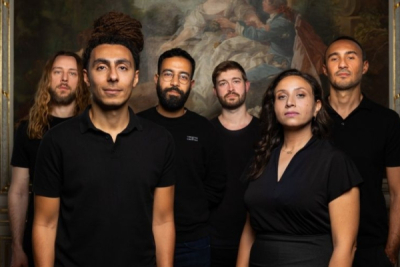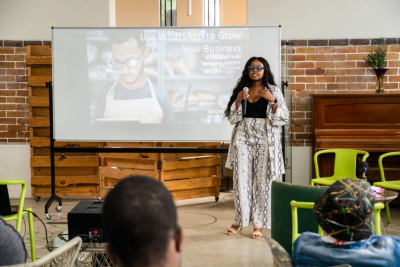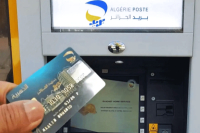
Brief (434)
Congo is implementing a €66.55 million project to build its national data center, according to an AFDB release dated May 17. Co-funded by the AfDB (€52.47 million) and the Republic of Congo (€14.50 million), the project includes constructing a data center and laying a 600-kilometer fiber cable.
The data center, a three-story building, will feature server and monitoring rooms, meeting spaces, and essential energy and air-conditioning equipment. Set for completion by December 2024, it is expected to be the main hub for the country’s digital data and support national projects like the digital identification initiative, boosting Congo’s digital infrastructure and security.
Kenya’s Ministry of ICT and Digital Economy has proposed the Information and Communications Technology Authority Bill 2024 to improve the technology sector. The draft bill, published in April 2024, outlines a licensing regime for ICT operators and establishes a framework for improved service delivery. For Cabinet Secretary for ICT and Digital Economy, Eliud Owalo, the bill aims to strengthen ICT service delivery by ensuring security, efficiency, and high quality, and simplifying ICT integration into public services.
The bill creates accreditation categories based on experience and technical skills. If passed, the relevant authority will assign accreditation levels to individuals or organizations that meet the prescribed requirements.
Egyptian fintech startup MNZL announced a successful $3.5 million funding round last week. The capital will fuel technology development and propel the company's growth within the Egyptian market.
"We at MNZL are going beyond a mere adjustment; it’s a complete revolution in credit access. This shift not only empowers families by providing financial leverage but also contributes to broader economic prosperity in the region," declared MNZL's co-founder Sameh Saleh.
Digify Africa has launched the 2024 Digify Pro Online program, a digital entrepreneurship initiative in collaboration with Meta and the Michael & Susan Dell Foundation (MSDF). The program targets unemployed youth aged 18-35 in South Africa, Nigeria, and Kenya. It aims to address youth unemployment by providing comprehensive digital marketing and entrepreneurship training.
The program consists of three levels: Foundational (6 weeks) introduces participants to digital marketing basics and professional skills; Intermediate (10 weeks) delves into strategic topics like content creation and data analytics through real-world tasks; Advanced (6 weeks) offers elective training in areas such as paid advertising and marketing data analytics with AI-driven methods.
Applications are open until June 2, 2024, for South Africans.
Viridian has launched RaiseReady, a seven-week program to enhance fundraising skills for female entrepreneurs in South Africa and Kenya, starting May 27th. It will equip participants with skills for equitable investor engagement, fostering support for women-led ventures. Applications are open.
Viridian, an impact agency, designs programs for early-stage entrepreneurs, investors, and support organizations across Africa's entrepreneurial ecosystem to bridge the gap between startups and angel investors.
On Monday, May 13, Jacques Fame Ndongo, the Cameroonian Minister of Higher Education, inaugurated a digital development center at the University of Yaoundé 2 Soa. The center, which can accommodate 40 students, features a smart classroom. It is equipped with cutting-edge technology for digitization and the production of multimedia courses, as well as distance learning.
On Thursday, May 9, Algerian Minister of Post and Telecommunications, Karim Bibi Triki, announced the upcoming installation of 1,000 new automated teller machines (ATMs) by Algérie Poste across the country. This initiative aims to meet the increasing demand for banking and financial services. It will help facilitate daily life for citizens, especially in areas where access to traditional banks is limited.
“Every May, we commemorate Africa Month, marking a time when the colours of African heritage and the bright promise of its future are brought to the forefront through vibrant celebrations. This year, we're thrilled to partner with the African Union to amplify these celebrations, inviting the world to #DiscoverMyAfrica through the power of YouTube Shorts,” Google reveals
“The #DiscoverMyAfrica Challenge is part of the African Union’s collaborative effort in driving innovation through strategic partnership with Google, through the Office of the Youth Envoy, Make Africa Digital (MAD) initiative,” an AU release, dated May 2, states.
This initiative celebrates Africa's diversity and heritage, empowering youth to share their stories globally. The challenge covers various aspects of African life, including music, art, food, fashion, and landmarks.
Hikmatu Bilali
Ghanaian healthtech DrDoGood has launched a Diabetes Management Program to support 5,000 Ghanaians with diabetes
The program provides educational resources, community support, and access to healthcare professionals, covering topics like diabetes management, nutrition, exercise, and mental health. Regular support group meetings and recognition initiatives are part of the community support.
Members can access healthcare professionals for personalized guidance and regular health monitoring.
Misr Digital Innovation (MDI), a Banque Misr subsidiary, has received initial approval from the Central Bank of Egypt to launch ‘onebank’, Egypt’s first digital bank.
The online-only bank aims to enhance financial inclusion and accessibility in Egypt. The official launch is expected in the last quarter of 2024, promising a more digitally-driven financial future for the country.
More...
The Agency for Information Systems and Digital (ASIN) announced on Tuesday, April 30, it is hosting an Artificial Intelligence hackathon from May 13th to 16th, 2024. Participants can join virtually or attend in person at the Palais des Congrès in Cotonou.
On April 16, the Malawi Communications Regulatory Authority (MACRA) fund, Muuni, launched the Smart Africa Youth Chapter to support digital startups.
This initiative aims to narrow the digital gap and boost economic growth by equipping young entrepreneurs with essential digital skills.
The Smart Africa Youth Chapter aims to cultivate young leaders capable of driving innovation and job creation through mentorship and training.
Chowdeck, a Nigerian startup operating in meal delivery, announced on Tuesday, April 30, the successful completion of a $2.5 million funding round. Speaking on the matter, Femi Aluko, co-founder of the startup, explained the funds will enable the startup to replicate its success in more parts of Nigeria and add value to customers, vendors and riders in “as many ways” as it can.
Food delivery platform Glovo will cease operations in Ghana on May 10, 2024, despite a previous €3.5 million ($3.7 million) investment for expansion, citing profitability issues.
Following this, Glovo will focus on other African markets, including Morocco, Uganda, Kenya, Côte d'Ivoire, and Nigeria.
Despite Co-founder Sacha Michaud's positive outlook on Ghana's market in 2021, challenges such as high taxes and inflation have led to this decision. Yet, the online food delivery market in Ghana is projected to generate US$224.60 million in revenue in 2024.















